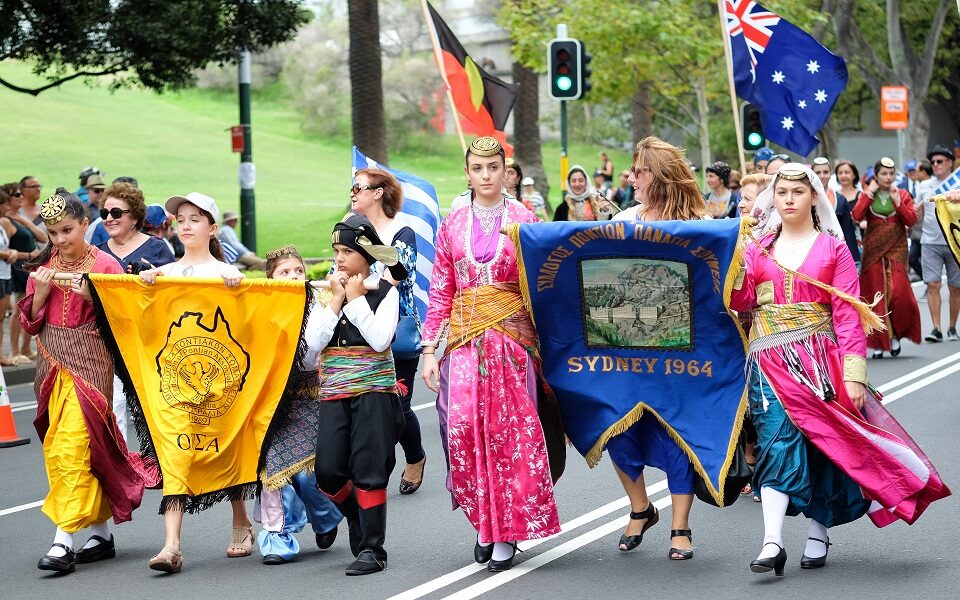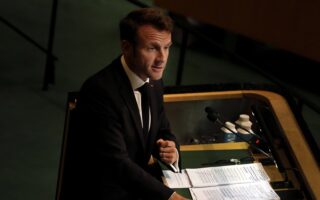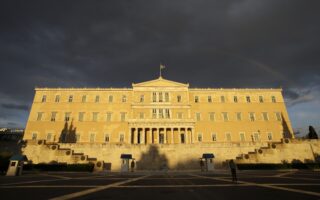Lobbying ethnic voters: The case of the Greek community of Melbourne

Ethnic voters drifting away from the two main political parties is one of the messages that emerged from the last election, as reported on June 13 in local newspaper The Age. There are probably many explanations that are distinct to the diversity of cultural characteristics of ethnic communities in Australia, but the Greek community is the focus here, and it is vitally important that we learn from the past as we move forward, especially for the Greek Orthodox Community of Melbourne and Victoria (GOCMV).
In the early 1990s, the GOCMV faced huge financial problems due to its large debt, as a result of a loan (approved in 1987 by the Annual General Meeting) for the purchase and operation of the Alphington Grammar School and the steep increases in interest rates. The GOCMV had faced a number of financial issues even prior to the purchase of the school, but the purchase merely expedited the financial collapse of the organization. However, the GOCMV board managed to get a loan from the National Bank of Greece (4.75 million dollars), guaranteed by the Greek government of Andreas Papandreou and approved by the Greek Parliament. The loan, which was never paid back, managed to save the community from bankruptcy, and subsequently the Greek government came to the help of the Greek community again in the early 2000s, with another donation of 2.6 million dollars, in order to support Alphington Grammar School. None would disagree with the undertaking of good deeds but they must always be aligned with prudent financial decision-making. Greece eventually faced its own demons of another bankruptcy and an economic crisis in 2010, raising the question about a moral obligation for the GOCMV to meet its debt obligations towards Greek taxpayers.
Fast-forward 30-plus years later, and the last weeks of the election campaign were intense, both publicly and behind the scenes. Publicly, until the very last week, political leaders made all sorts of promises, many of them costly, with no mention of spending cuts or tax increases that would be needed to pay these off in the future. This is how the pre-election climate was in the “formal” Greek community of Melbourne, with negotiations by community organizations (religious and secular alike) for funding commitments from political parties. Along the way, the Federal Labor Party pledged $1.8 million to fund the GOCMV, the same amount was promised by the Liberal ruling Coalition, in order to upgrade facilities in five key Greek community locations across Melbourne. It was preceded by a campaign promise from the Australian Federal Labor Party to fund the Greek Orthodox Archdiocese in Melbourne with $10 million to set up a cultural center. There was no apparent overlap between such funding commitments towards these projects, despite the similarities. But like in the past, such allocation of funds in the form of pledges or gifts (also from Greece) that are expended by the community’s “ruling classes” without consultation may be perceived as a misappropriation of funds.
Against this background, there are some similarities between past and present decision-making which point to a lack of transparent and prudent behaviors. While the GOCMV may not be facing the danger of another bankruptcy these days, it is important that we understand that its progress would be far greater in the presence of decision-making based on independent and constructive feedback to avoid dangers in the future. Still, an indirect danger relates to the distancing of the second and third (and so forth) diaspora generations from unsound and not inclusive community institutions that do not represent their values and principles. Indeed, these institutions must be able to embrace flexibility and adaptability in order to engage with these generations that keep moving away from the immigrant culture in ever-changing contexts as well as the new wave of Greek immigrants after 2010.
This danger of shrinking institutions looms large when we consider that the GOCMV has a proportionately very low membership (about 1,500 members) considering that Melbourne is the “capital” of the Greek diaspora, and as such is not truly representative of the vibrant and dynamic Greek community of Melbourne. Indeed, according to the 2021 Australian census, Melbourne has the largest Greek population in Australia with 181,200 Greeks, which translates to a GOCMV representation of 0.8 percent. It will also be interesting to know how representative of the Greek-Australian community the Greek Orthodox Archdiocese is, given that the latest 2021 census showed that Australia is very secular, with almost 40 percent of the country’s population being reported as having no religion, an increase from 30 percent in 2016 and 22 percent in 2011. In this light, it is then reasonable to ask if these funding pledges on behalf of the community to Greek Australians take place (in the end) in consultation with the wider community that the GOCMV purports to represent. This does not seem to be the case, and so raises the question as to how political parties perceive the interaction of the leadership of ethnic communities with its members when they make these funding pledges.
This does not imply, by any means, that the funding pledges referred to here have been misplaced, but it raises concerns within the community due to the lack of consultation, and more information is needed by citizens from political parties as well as expectations about accountability for taxpayer-funded projects. Perceptions of political manipulation with ad hoc funding pledges (or otherwise) may be the other side of the coin for many members of the ethnic communities in a political landscape with unpredictable voting patterns, such as the emergence of the so-called teal seats, where the most dominant characteristic was the high levels of “educational attainment” of voters according to the emerging evidence.
The mainstream Greek-Australian community is not a predictable one that yields to political funding pledges, but one whose members express themselves politically as thinking and active citizens, with an interest in public affairs, as was the case in the ancient Athenian democracy, as individuals, as part of a greater society, not as part of an ethnic community. It is vitally important that the Greek government understands that its diaspora policy is selective and limited in terms of its outreach to the mainstream Greek diaspora.
Dr Steve Bakalis is an economist.





